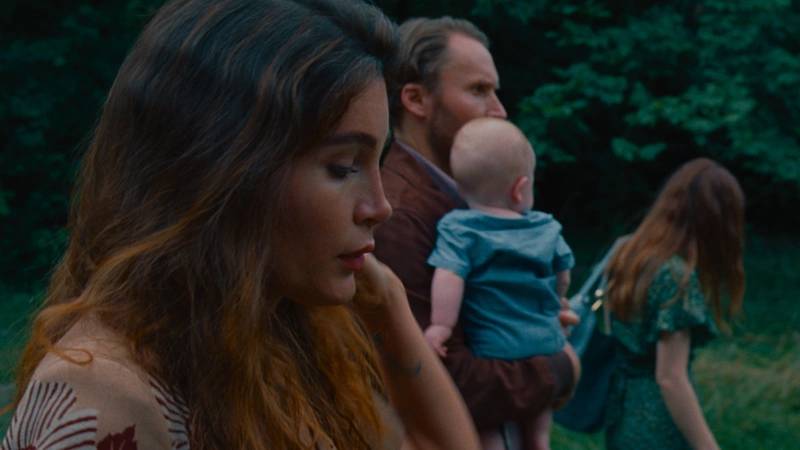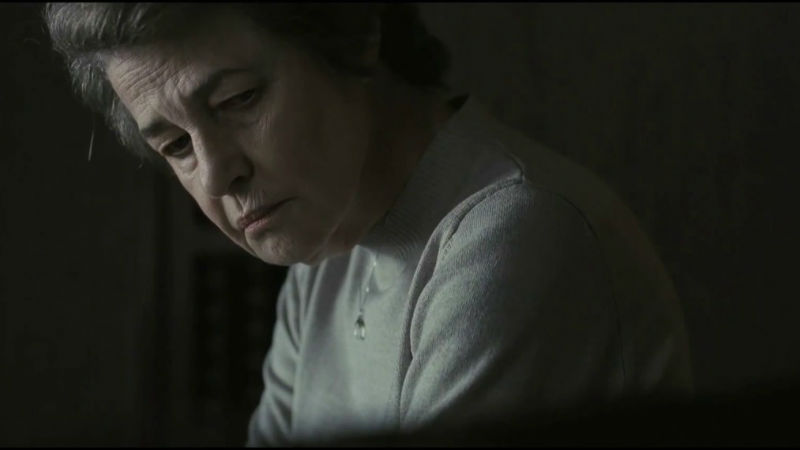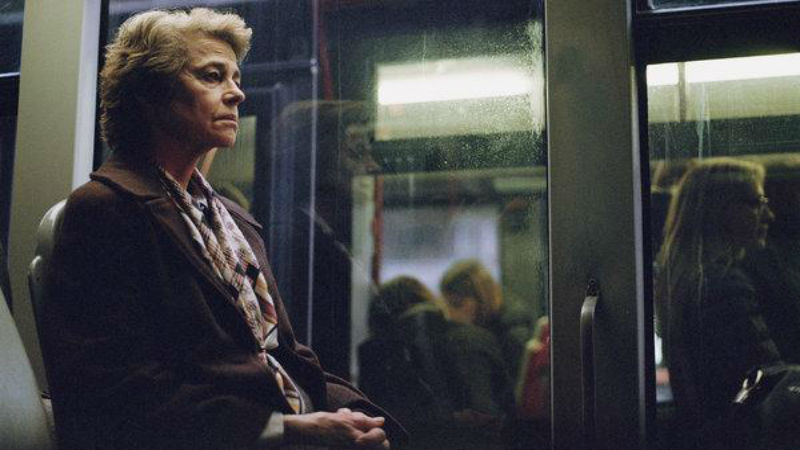Monica has been ostracised from her family. Nevertheless, she decides to return home in order assist in the care of her dying mother, despite not seeing her for many years. The circumstances are far from ideal and certain secrets are yet to be revealed, and with abandonment, still fresh on the mind, this fractured family must unite once again for the final moments of a matriarch’s life.
The story begins with Monica (Trace Lysette) taking an important phone call, her voice and mannerisms already highlighting so much; there’s a lot of anguish in her trembles, and past pain is a constant thorn in her life. As the minutes slowly roll by, the film opens itself up to the viewer and offers an inkling about what could be the cause of the hurt – even in her work you can see Monica’s mind wandering to other things with ease. Unconventional camera angles scattered throughout the film only showcase parts of Monica’s face or body, almost as if access to her life is not allowed by outsiders. Fragments of this mysterious woman’s life only being released in dribs and drabs.
Monica’s solitude is broken when she returns to her family home after finding out that her mother, Eugenia (Patricia Clarkson, Six Feet Under) is dying of a brain tumour and it has started to affect her senses; the body is ailing and very fragile; her mind is no longer as it was, to the point that she has no idea who this strange woman is that is now helping with her care – Monica is a trans male who hasn’t seen her family since she transitioned. This untimely homecoming allows Monica to reunite with her estranged brother Paul (Joshua Close) while also meeting his wife Laura (Emily Browning, Legend) and their children for the first time.
Accompanying the story is a very well-constructed soundtrack with perfectly chosen songs such as Pulp’s Common People which plays over the radio and offers a little more explanation into the narrative. They act as signifiers in what would usually be a very vague film, and God knows you need help staying engaged with this story. The performances from everyone involved also aids the film throughout, especially from Lysette, who really explodes in the role and uses her full range of acting talents (and possibly some of her own experiences) to portray this nearly broken woman at her darkest and her shining best.

There are some beautifully nuanced and subtle moments spread across the film (albeit sparingly) that attempt to offer insight into the story. Moments such as Monica crying in the bathtub, or tenderly sharing her mother’s bed – such powerful images that leave a lasting impression on one’s mind, but for all the emotion that these moments do provide, the film is left hidden by a murky mist. It leaves too much to interpretation, none of the past trauma comes out in the wash as it were, and as the film slowly trundles past the halfway mark, you are still none the wiser to whatever it was that happened. The uncovered secrets of the film are its biggest pitfall because nothing of any real merit happens within the story, you are left wanting more, hoping for some sort of resolution, but it never comes – teetering on the edge of a cliff for so long is not good for anyone’s psyche.
Monica also suffers from being too slow. Apart from a raunchy sex scene and some intimate moments between mother and daughter, it really does struggle to grab the attention of the people that have taken two hours to view it. It feels like a missed opportunity more than anything because its lack of disclosure isn’t as sophisticated as it thinks it is. What begins with the promise (or at the very least the allure) of genuine drama and pure emotion, soon becomes none of these things, when it could so easily have been exactly that.
After debuting at last year’s Venice Film Festival, Monica will make its UK debut at this year’s From Venice to London Film Festival, which takes place between February 3rd and 6th at Curzon Soho.










